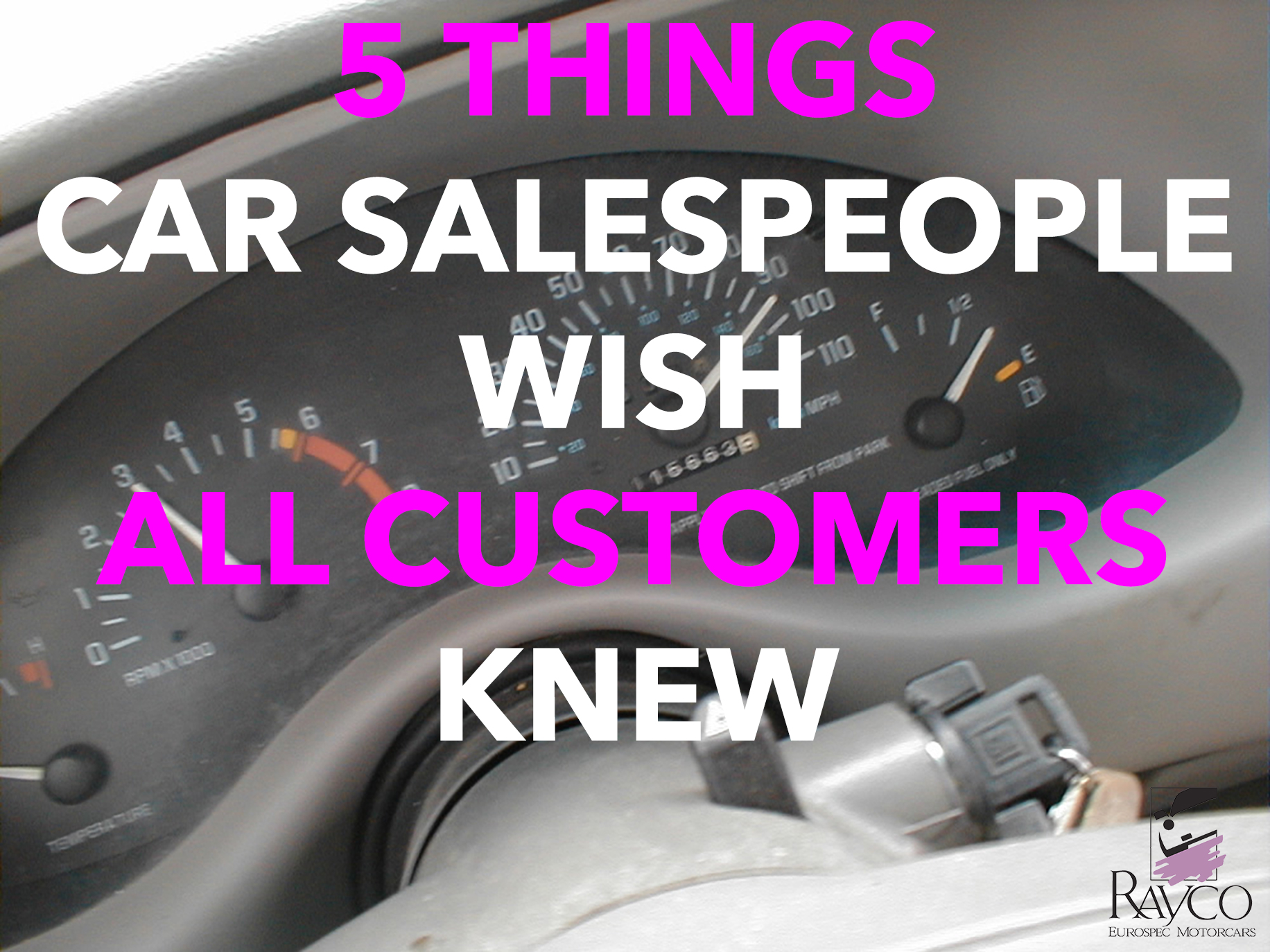
5 Things Car Salespeople Wish All Customers Knew
5 Things Car Salespeople Wish All Customers Knew
You’ll have no reason to be afraid of your car salesman after you read these.
Kelly Blue Book and other value estimation websites are also not always accurate in their assessments.
Ever since the first Ford Model T drove off the production line, car buyers and car sellers have been at odds. Customers are afraid of being ripped off, while sellers are trying to make a living.
A quick search of the Internet will provide any car buyer with a litany of information to help you get the best deal, everything from dealer invoices to how to haggle guides.
What I’m going to provide for you today is something a little different. You see, a lot of information you find online is about as accurate as that “Are You a Genius” quiz you took. So here are five things that every car salesperson I’ve ever met wished car buyers knew. Believe me, it would make both of our lives — you, the buyer and me, the seller — a heck of a lot easier.
You’ll have no reason to be afraid of your car salesman after you read these.
1 We truly want to help you
This might be one of the toughest things for the general public to understand about automotive salespeople. Car salespeople want to help you. Why?
Because if we can help you, then it helps us. Our goal is to make you as happy as possible in your new (or used) car so that you come back to us year after year and recommend us to all of your friends and family.
Yes, there are some people who get into car sales for a quick buck, but they never, ever last long. Believe me.
It’s the people who want to make a difference in your life and community that end up having staying power and become a trusted resource for you for years to come.
Let us help you. It’s all we want to do.
2 We’re working-class folks, just like you
We oftentimes forget that car salespersons are regular working-class folks just like everybody else. Some have college degrees, and some don’t. We work very long hours to provide for our families, spending most of our time away from our spouses and children due to the demanding hours of automotive sales, taking calls and answering emails even when we’re not at our store.
Many car salespeople do make a great living, but to say that we work for it is an understatement. All we ask is that you think of us the same way you think about other professionals who work hard to get ahead, we just happen to work in an industry that has sometimes been unfairly maligned.
Additionally, the person selling you that Ferrari may not be doing as well as the person selling you that Ford. It’s just the way it works.
3 Margins on vehicles are relatively small
Margins on cars are nowhere even close to what they once were decades ago, even years ago. The internet has definitely helped drive down prices for consumers, which in turn means much smaller margins for car salespeople.
This isn’t meant to invoke pity, only to make the point that the dealership, and in turn the salesperson, is probably not making anywhere near what you think they’re making on a vehicle.
In fact, many car salespeople only make what’s called a “mini” on a large percentage of their car deals. A mini is a flat-fee paid per vehicle when there’s little to no profit involved for the dealer. An average mini is about $100 per car deal, not exactly a big reward for the hours worth of work.
4 Your car’s trade-in value will depend on its condition
Car salespeople would love to give you what you’re asking for your trade-in vehicle every time because it would help us earn your business, but it’s just not possible.
Kelly Blue Book and other value estimation websites are also not always accurate in their assessments.
Your car’s value will depend on three things. Its
- condition,
- the state of the market,
- and the dealership’s likelihood of being able to do something with the vehicle after it’s been traded in.
This is why it helps to take great care of your vehicle, both mechanically and cosmetically. If it’s in great shape and is a marketable vehicle, then you’re more likely to get what you’re looking for when it comes to its trade-in value, as long as your expectations are reasonable.
5 We don’t have much control over your payment
Despite what you may think or might have heard from a friend, car salespeople have almost no control over how much your car payment is going to be. Your payment is determined by
- the price of the vehicle you’re purchasing,
- the value of your trade-in (if there is one),
- how much money you’re putting down,
- your credit score,
- the current market lending rate (for people with your credit profile),
- and the length of your loan term.
While salespeople sometimes have a bit of flexibility on the pricing of certain vehicles, every other aspect of your payment is entirely out of their control.
Also keep in mind that even if you do find a vehicle that has some wiggle room on price, a $1000 price decrease on a vehicle only ends up saving you about $18 a month on a 5-year payment.

